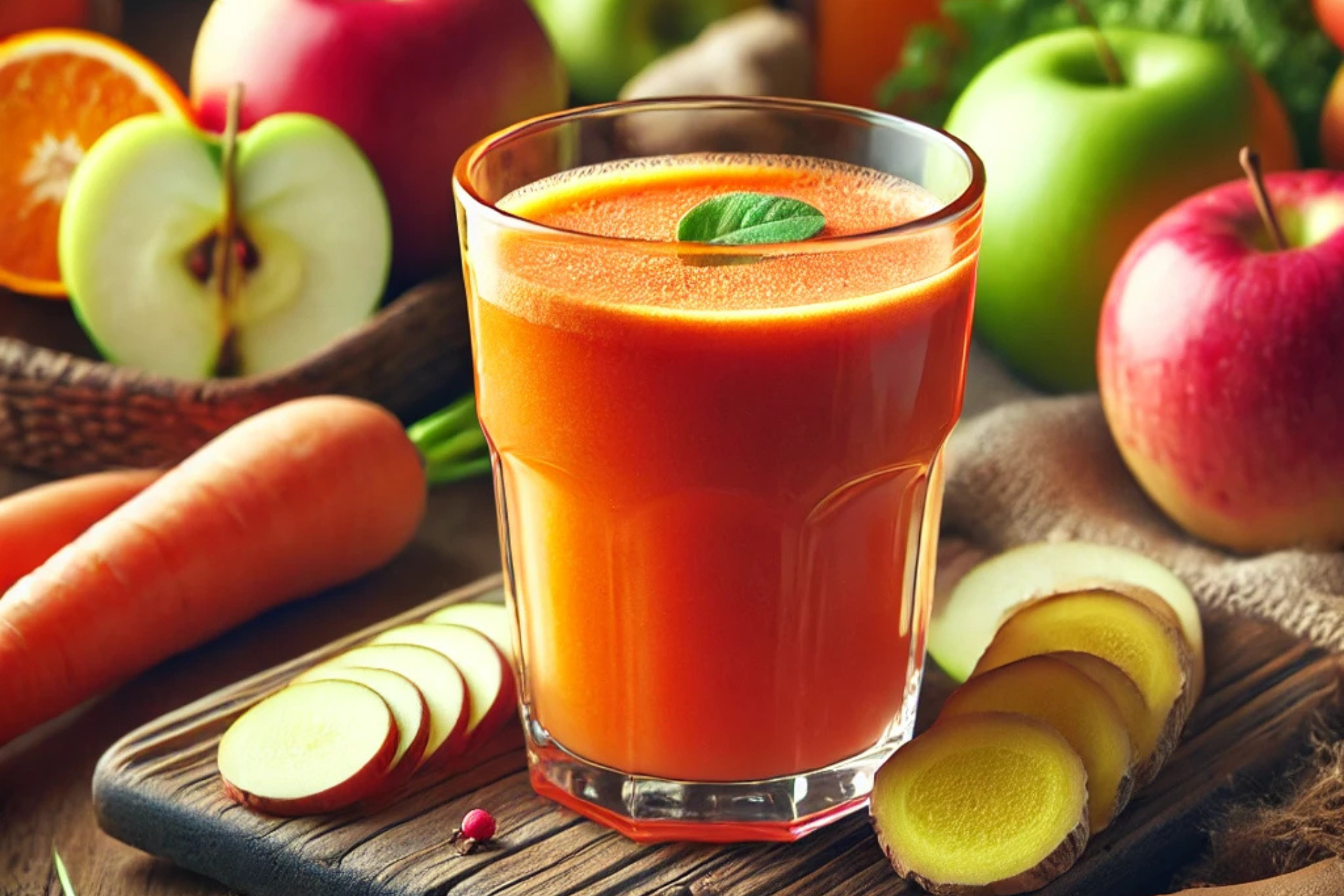Introduction
Allergies are a growing problem in modern society, affecting people of all ages and in different parts of the world. Whether caused by pollen, dust, food, or even chemicals, allergic symptoms can be extremely uncomfortable. Although traditional medications are effective, many people are seeking more natural alternatives to manage their symptoms. In this article, we will explore various natural allergy treatments, including teas, foods, supplements, and simple recipes, all with therapeutic properties and easy to prepare at home. Get ready to discover how nature can be your ally in combating this issue!
What Are Allergies and How Do They Affect the Body?
Before we dive into natural solutions, it is important to understand how allergies affect the body. Allergies occur when the immune system reacts abnormally to substances that are typically harmless to most people. The immune system identifies these substances as threats and responds by releasing histamine, which leads to symptoms such as sneezing, itching, red eyes, difficulty breathing, and even swelling.
There are several types of allergies, such as respiratory (pollen, dust), food (peanut, milk), skin (contact with certain products), and seasonal. The good news is that, in addition to conventional treatments, there are many natural ways to relieve these symptoms.
Natural Teas and Beverages to Relieve Allergies
Teas are one of the most popular natural treatments due to their ease of preparation and the variety of therapeutic properties they offer.
Chamomile Tea
Chamomile is a medicinal plant with powerful anti-inflammatory and calming properties. It helps relieve nasal congestion and irritation in the respiratory tract, which are common in allergies. Additionally, chamomile has a relaxing effect, which can help improve sleep, often disrupted by allergies.
How to Prepare:
- Boil 1 cup of water.
- Add 1 to 2 teaspoons of chamomile petals that are dried.
- Let it steep for 10 minutes, strain, and drink while still warm.
Extra Tip: If you suffer from seasonal allergies, you can drink chamomile tea daily during critical periods.
Peppermint Tea
Peppermint is an herb with powerful decongestant properties, ideal for those with respiratory allergies. It also aids in digestion and helps alleviate inflammation throughout the body. Peppermint tea can provide immediate relief by helping to dilute mucus and ease breathing.
How to Prepare:
- Boil 1 cup of water.
- Add 3 to 4 fresh peppermint leaves.
- Let it steep for 5 minutes and drink warm, several times a day.
Ginger and Lemon Tea
Ginger is another powerful ingredient for fighting inflammation and can help relieve allergy symptoms, such as nasal congestion and sore throat. Lemon, in turn, is high in vitamin C, which can strengthen the immune system and decrease histamine production.
How to Prepare:
- Boil 1 cup of water.
- Add a small piece of fresh ginger and the juice of half a lemon.
- Let it boil for 3 to 5 minutes and drink warm.
Foods That Help Fight Allergies
A balanced, anti-inflammatory diet can work wonders for relieving allergy symptoms. Let’s explore some foods that should be included in your diet.
Garlic
How to Use:
- Eat 1 raw garlic clove per day, chopped or mashed, with a bit of honey.
- It can also be added to soups, sauces, and salads.
Ginger
Ginger is a powerful root for combating inflammation. It promotes better blood flow and aids in detoxifying the body. Regular consumption of ginger can reduce the impact of seasonal allergies and relieve inflammatory reactions in the respiratory tract.
How to Use:
- Brew fresh ginger tea or incorporate pieces of the root into juices and smoothies.
- Ginger capsules, available in health food stores, are also an option.
Fruits Rich in Vitamin C
Vitamin C is crucial for strengthening the immune system and reducing the body’s inflammatory response. Fruits like oranges, lemons, kiwis, strawberries, and acerola are rich in this nutrient and can help prevent and relieve allergy symptoms.
How to Use:
- Eat these fruits fresh or make natural juices.
- Acerola is an excellent option as it has a much higher concentration of vitamin C than oranges.
Natural Supplements for Allergy Relief
If you want an extra boost for your immune system, some natural supplements can be helpful. It’s important to consult with a doctor or nutritionist before beginning any supplementation.
H3: Vitamin C
Vitamin C has been widely studied for its ability to strengthen the immune system and reduce allergy symptoms. It acts as an antioxidant, reducing histamine release.
How to Use:
- Vitamin C supplements are commonly recommended in doses of 500 mg to 1,000 mg per day.
- Alternatively, you can increase your intake of vitamin C-rich foods.
Probiotics
Recent studies suggest that gut health plays a crucial role in the body’s immune response. Probiotics, found in foods like yogurt and kefir, help balance the gut flora, which can reduce the severity of allergies.
How to Use:
- Incorporate fermented foods like kefir, sauerkraut, and kimchi into your diet.
- Probiotic supplements are also available and should be used under medical guidance.
Simple and Effective Recipes for Allergy Relief
H3: Apple, Carrot, and Ginger Anti-Allergy Juice
This juice is an excellent option for those who want to fight allergies in a tasty and healthy way. Ginger, apple, and carrot are rich in anti-inflammatory nutrients and can help relieve nasal congestion and sore throat.
Recipe:
- Ingredients: 1 apple, 2 carrots, and a small chunk of ginger.
- Preparation: Wash the ingredients well and pass them through a juicer or blender. Serve fresh.
Detox Salad with Greens and Avocado
A detox salad made with dark leafy greens and avocado can help reduce inflammation and improve digestion, which has a positive impact on the body’s response to allergies.
Recipe:
- Ingredients: Spinach leaves, arugula, lettuce, ½ avocado, olive oil, lemon.
- Preparation: Mix all the ingredients in a bowl. Dress with olive oil and lemon, and serve as a main dish or side.
Conclusion
Natural allergy treatments can be an effective and healthy way to manage symptoms, especially when combined with healthy lifestyle habits. Incorporating teas, foods, and natural supplements into your routine can provide relief and improve your quality of life. However, it is important to remember that each person may react differently to treatments, so it is essential to seek the guidance of a healthcare professional.
Frequently Asked Questions (FAQ)
1. What are the best teas to relieve allergies?
Chamomile, peppermint, and ginger teas are highly recommended to relieve respiratory allergy symptoms and inflammation.
2. Can I replace my medications with natural treatments?
Natural treatments can complement medications, but they should not replace them without medical advice.
3. How can I strengthen my immune system to prevent allergies?
A diet rich in vitamins, especially vitamin C, and the consumption of probiotics can help strengthen the immune system and reduce allergy intensity.
Discover how to identify and manage your allergies effectively. Read our full article at ajustersavie.com to better understand the necessary care and live with better quality!
Read also How to Differentiate Respiratory Diseases on the juliocemar.com website

